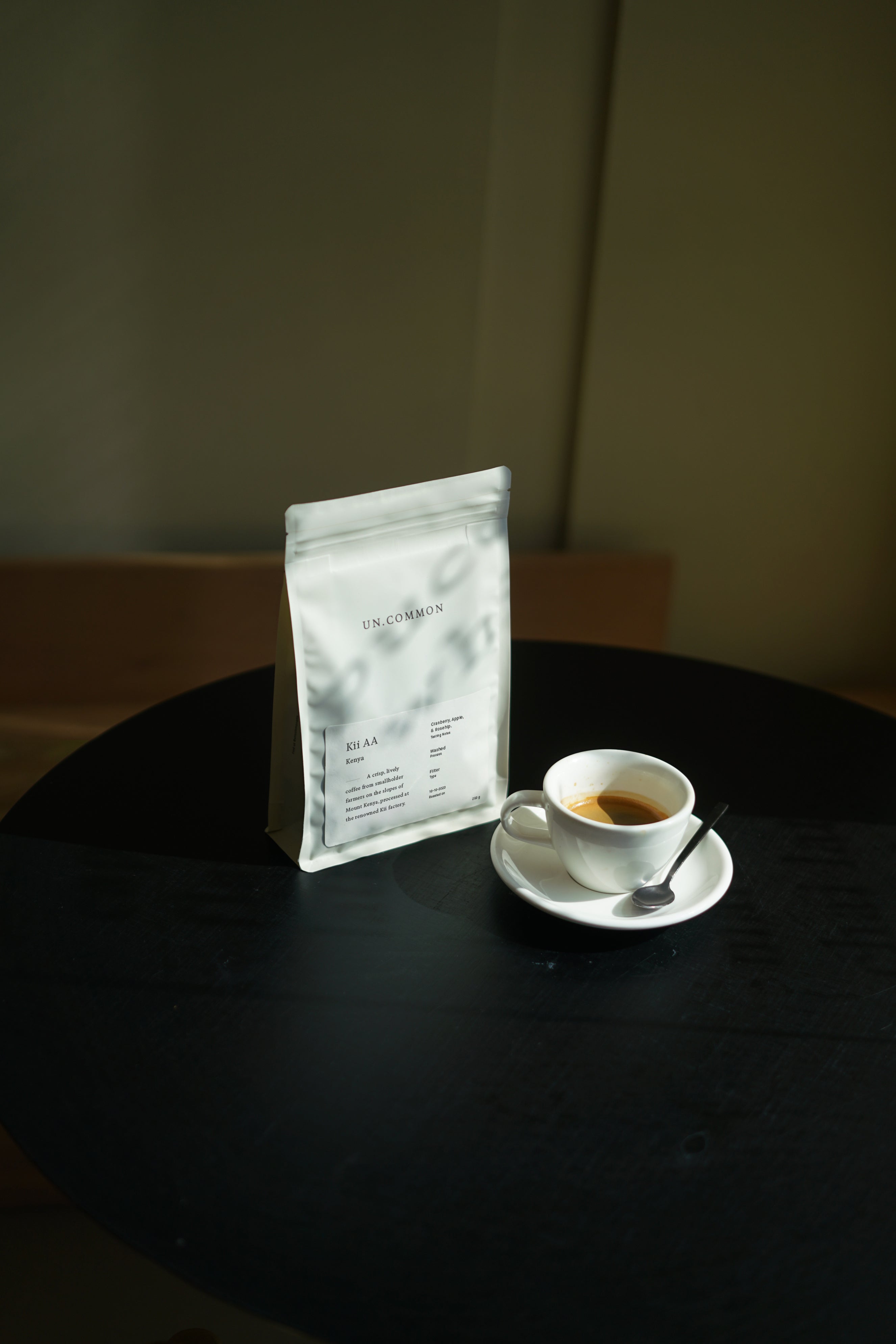
Kii AA - Kenya - SL28 & SL34 - Washed
Kenyan Energy! This is a lively coffee from smallholder farmers on the slopes of Mount Kenya, processed at the Kii factory. The factory sits right on the Kii river and uses the cold, mountain water to produce exceptionally bright, clean washed coffees. This is well-processed, high altitude, SL-variety Kenyan coffee. Expect a bright, vibrant coffee with notes of cranberry, apple, and rosehip.
Info
Factory
Kii Factory is owned and operated by Rungeto Farmers Cooperative Society (FCS) and is well known for producing high quality coffee.
Region
The 850 small-holder farmers grow tea and coffee in the Kirinyaga East District, Gichugu Division. The locals call Mt. Kenya ‘Kirinyaga’, the namesake of the county, meaning the 'crest of whiteness' due to its famous snow-capped peaks.
Curiosities
The Northeast of Kirinyaga is mainly a tea-growing region and most of the coffee trees here have been planted rather recently, just before the rise of hybrid varietals in Kenya, less than 1% of the coffee delivered to Kii are Ruiru 11 and Batian. It's increasingly rare to find a lot that is made up of mostly SL28 and SL34 like this one. Unlike some neighbouring regions, soils here haven't been depleted by years of conventional agriculture, meaning these high quality varieties can thrive without the need to be replaced by more disease-resistant hybrids.
Elevation
The region is host to high elevations of up to 1900 masl with rich, loamy clay soils. The farms overlook the famous elephant migration route that connects Aberdare and Mt. Kenya Forest. The area is wild with animals such as buffaloes, antelopes, bushbuck, and monkeys.
Variety
This lot is made up of solely SL28 and SL34. These varieties were bred by Scott Agricultural Laboratories in the 1930's for their resistance to drought and was widely planted throughout Kenya. Fortunately, the cup quality happens to be exceptional. The SL varieties are a big reason why, for decades, Kenyan coffee was regarded as the best in the world.
Process
The Kii factory uses Kenya's 'double washed' method which involves pulping, fermenting in mucillage, washing, a secondary 'soaking', and finally drying on raised African beds.
Kii
"The Kii factory produces washed coffees thanks to the Kii river. The cold, fresh, fast-running water comes straight from Mt. Kenya’s snowy peaks."
The Kii factory is very professionally run; their cherry selection, fermentation, sorting and separation is of a very high standard, resulting in excellent coffee. The cherries are first de-pulped mechanically, as soon as they arrive at the factory. The cherries should arrive for de-pulping as soon as possible after picking. After de-pulping, the coffee with its mucilage is fermented in large tanks for between 12 and 24 hours, breaking it down so it can be ‘washed’ off the seeds, using long washing channels. The cherries are then taken to another set of fermentation tanks, and fermented again under water, normally for a shorter time, between 10 and 12 hours. This ‘double washed’ is popular in Kenya, and is useful not only for homogenising the bean mass, but also as a secondary opportunity to sort for lower density floating seeds.


Rung'eto FCS
"The Rung'eto Farmers Cooperative Society represents 1,214 small scale farmers, who all culitvate coffee on small plots under 0.5 hectares on average.".
Rung'eto own and run 3 factories in Kirinyaga, all of which are producing some of the highest quality coffee in the country. They are: Kiangoi, Karimikui, and Kii. The individuals that make up the collective actually grow more tea than coffee. The Rung'eto FCS provides financing to those who require financial assistance before the harvest is complete. There are a number of challenges, including lack of access to enough loan facilities and high costs of agricultural inputs. But the FCS is encouraging producers to shift to coffee rather than tea, since the value of coffee is higher and production is gradually increasing.
